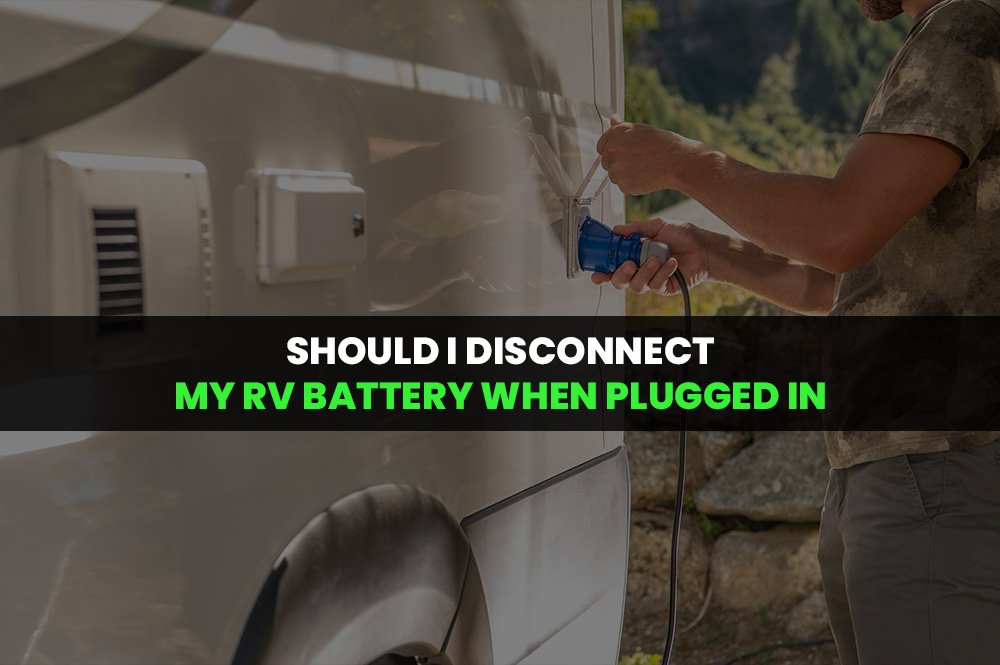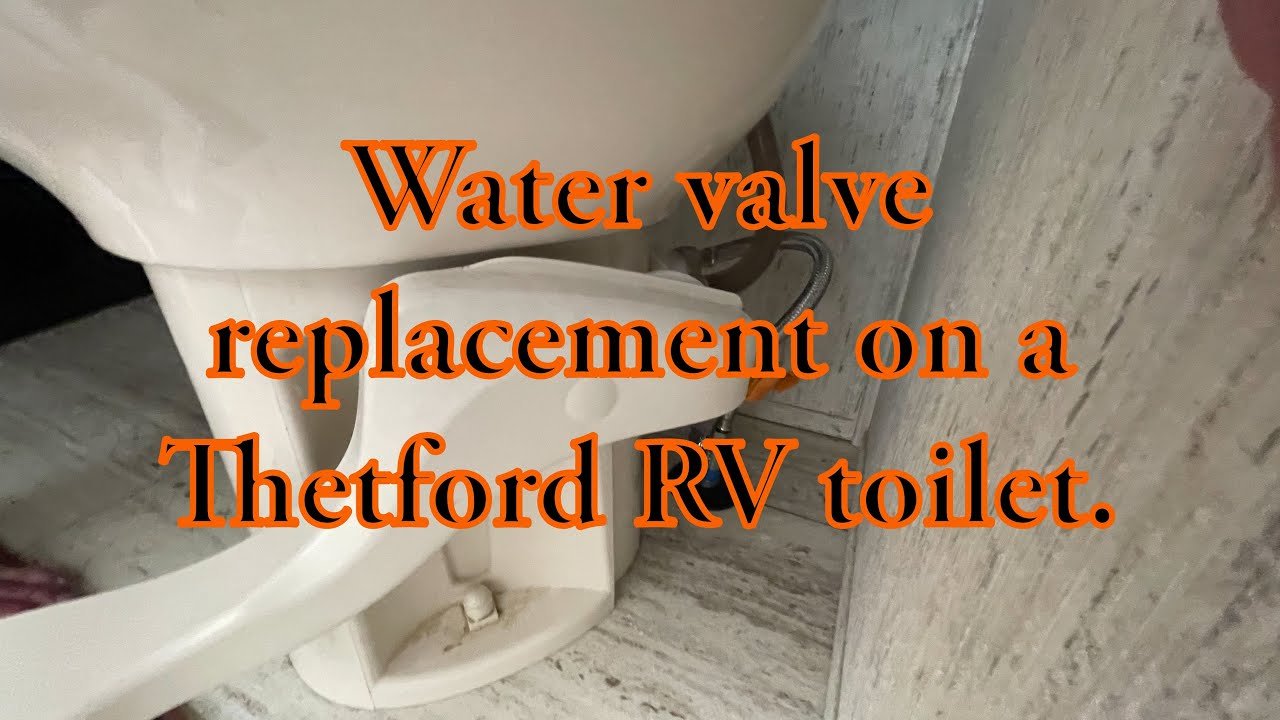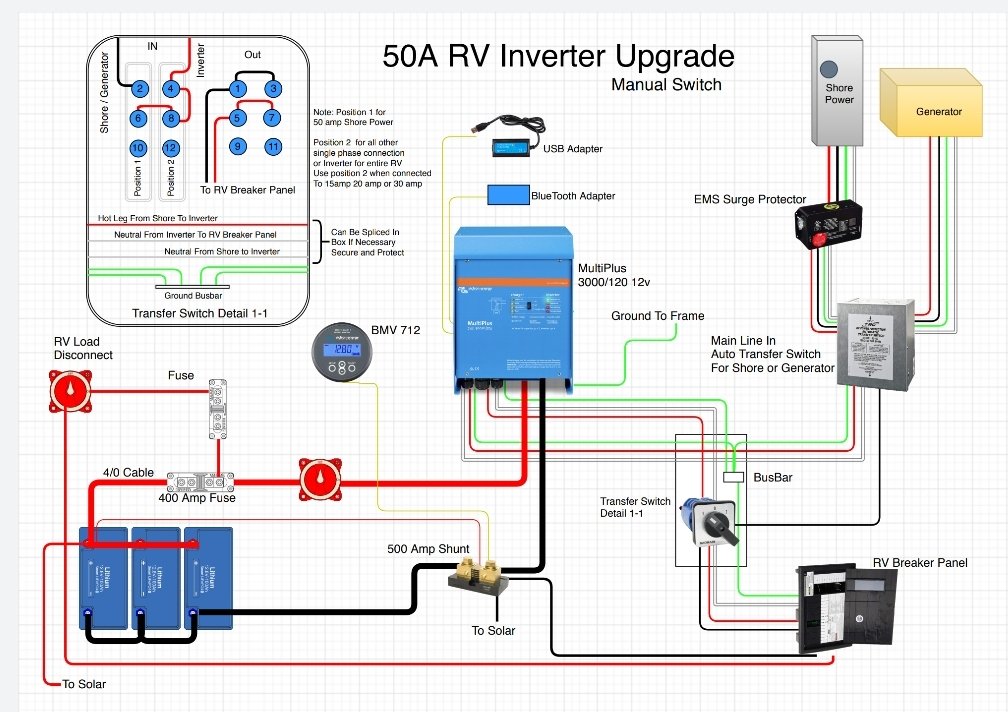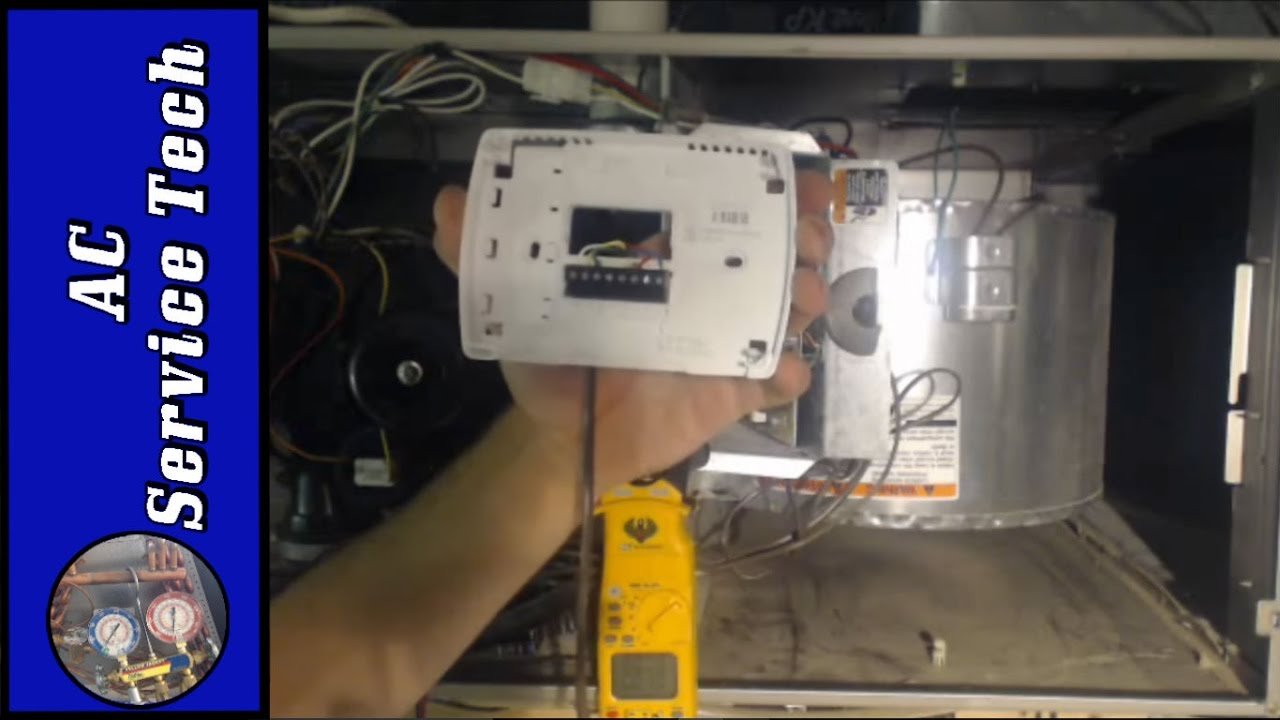Yes, you should disconnect your RV battery when plugged in. This prevents overcharging and prolongs battery life.
RVs are a blend of convenience and adventure. Understanding how to manage the battery is crucial. When your RV is plugged into shore power, the battery can overcharge. Overcharging harms the battery, reducing its lifespan. Disconnecting the battery avoids this issue.
But, there are more nuances to consider. For instance, some RVs have built-in battery maintainers that prevent overcharging. Knowing your RV’s system helps in making the right decision. Let’s dive deeper into why and how to manage your RV battery effectively. This knowledge ensures your adventures are smooth and worry-free.

Credit: www.reddit.com
Introduction To Rv Battery Management
Managing your RV battery is crucial for a smooth journey. Proper care extends the battery’s life and ensures that you have power when you need it most. In this section, we will explore the importance of proper battery care and common issues that RV owners face.
Importance Of Proper Battery Care
Proper battery care is essential for the longevity and efficiency of your RV’s electrical system. Here are some key reasons why:
- Longevity: Regular maintenance can extend the life of your battery.
- Performance: Well-maintained batteries perform better and provide reliable power.
- Safety: Proper care reduces the risk of battery-related issues.
Neglecting your RV battery can lead to unexpected failures. This can ruin your trip.
Common Battery Issues
Several issues can affect your RV battery. Understanding these helps in proper maintenance.
| Issue | Description |
|---|---|
| Overcharging | This can cause overheating and reduce battery life. |
| Sulfation | Sulfur crystals form and reduce the battery’s capacity. |
| Undercharging | Failure to fully charge can lead to reduced performance. |
| Corrosion | Build-up on terminals can disrupt power flow. |
Regular inspection and maintenance can prevent these issues. Check your battery’s condition often. Clean the terminals and ensure proper charging practices.

Credit: www.timeusbpower.com
Understanding Rv Electrical Systems
Understanding your RV’s electrical system is crucial for a smooth trip. Knowing how it works can help you avoid problems. It ensures you have power for all your needs. From lights to appliances, every component plays a role.
Components Of An Rv Electrical System
An RV’s electrical system includes several key components. These include the converter, inverter, and shore power connection. The converter changes AC power to DC power. The inverter does the opposite, changing DC power to AC power. The shore power connection allows you to plug into an external power source.
Additionally, there are circuit breakers and fuses. They protect your system from overloads. Understanding these parts helps you manage your RV’s power needs.
Role Of The Rv Battery
The RV battery is a vital component. It provides power when you are not plugged in. It powers lights, the water pump, and other 12-volt systems. The battery also works with the converter to supply DC power.
When plugged in, the converter charges the battery. This ensures it is ready when you disconnect. Proper battery maintenance extends its life and ensures reliable power.
Benefits Of Disconnecting The Rv Battery
Disconnecting your RV battery while plugged in can be very helpful. This action can prevent issues and extend the battery’s life. Let’s explore the main benefits in detail.
Preventing Battery Drain
When your RV is connected to a power source, various devices continue to draw power. This slow drain can affect your battery’s health. Disconnecting the battery stops this unwanted power draw. As a result, your battery stays charged longer.
Extending Battery Life
Maintaining your battery’s health is crucial. Frequent charging and discharging can reduce its lifespan. By disconnecting the battery, you reduce the cycles of charging and discharging. This helps in extending the battery’s overall life.
Risks Of Disconnecting The Rv Battery
Disconnecting the RV battery while plugged in might seem like a good idea. It can, however, lead to several risks. These risks can affect your RV’s essential systems and appliances. Understanding these risks can help you make better decisions about your RV’s power management.
Loss Of Power To Essential Systems
When you disconnect your RV battery, essential systems may lose power. For example, the smoke detector and carbon monoxide alarm rely on battery power. Without these, your safety is at risk.
Additionally, the RV’s control panel may also lose power. This can make it difficult to monitor your RV’s systems. You may not be able to see tank levels or battery status.
Impact On Appliances And Devices
Some appliances and devices in your RV may not work properly without battery power. For instance, the refrigerator often needs a stable power source to keep running. If the battery is disconnected, it may not function correctly.
Other devices, such as the water pump and lights, also rely on the battery. Disconnecting the battery could cause these to fail. This can lead to inconvenience and discomfort during your trip.
Consider the following table for a quick overview of affected systems:
| System | Impact |
|---|---|
| Smoke Detector | Loss of safety alerts |
| Control Panel | Inability to monitor systems |
| Refrigerator | Possible malfunction |
| Water Pump | Inability to use water |
| Lights | Loss of lighting |
By understanding these risks, you can better manage your RV’s battery and power systems. This ensures a smoother and safer RV experience.
When To Keep The Rv Battery Connected
Keep the RV battery connected when plugged in to maintain a steady charge. This prevents battery drain and ensures readiness for use. Disconnecting can lead to unexpected power loss.
Keeping your RV battery connected can be vital in certain situations. Knowing these will help you make informed decisions. Here are some scenarios where you should maintain a connected RV battery.
Situations Requiring Continuous Power
Some devices need continuous power. For example, security systems and alarms. These systems protect your RV from theft or damage. A connected battery ensures they work non-stop. Climate control systems also need continuous power. If you are in extreme temperatures, your RV’s heating or cooling system must run. A connected battery helps maintain a comfortable environment inside your RV.
Short-term Vs. Long-term Parking
Short-term parking: When parking for a short period, keep the battery connected. This helps keep your RV ready to use. For instance, if you are stopping overnight. Long-term parking: In long-term parking, disconnecting might be better. This helps prevent battery drain. But, if you have devices that need power, keep it connected. Use a battery maintainer to avoid overcharging. Table: Short-Term vs. Long-Term Parking
| Parking Duration | Battery Connection | Reason |
|---|---|---|
| Short-Term | Connected | Keeps RV ready to use |
| Long-Term | Disconnected | Prevents battery drain |
- Keep the battery connected for short-term parking.
- Disconnect the battery for long-term parking, unless devices need power.

Credit: www.renogy.com
Expert Tips For Rv Battery Maintenance
Maintaining your RV battery is crucial for a smooth and enjoyable trip. Proper care ensures your battery’s longevity and efficiency. Here are some expert tips for RV battery maintenance that will help you keep your battery in top shape.
Regular Battery Inspections
Conducting regular inspections of your RV battery is essential. Look for any signs of wear or damage. Check the battery terminals for corrosion. Clean them using a mixture of baking soda and water.
Ensure the battery is securely mounted in its compartment. Loose batteries can cause vibration damage. Inspect the battery case for any cracks or bulges. Replace the battery if you find any significant damage.
Proper Charging Practices
Proper charging is vital to maintain your RV battery’s health. Overcharging or undercharging can reduce its lifespan. Use a smart charger that automatically adjusts the charging rate. This helps prevent overcharging.
Charge your battery fully before storing your RV for long periods. Disconnect the battery if you plan to store your RV for more than a month. This prevents the battery from draining.
Here is a quick reference table for proper charging practices:
| Action | Reason |
|---|---|
| Use a smart charger | Prevents overcharging |
| Charge fully before storage | Maintains battery health |
| Disconnect for long-term storage | Prevents draining |
Follow these tips to ensure your RV battery remains in good condition. This will help you enjoy your trips without any battery issues.
Alternative Solutions For Battery Management
Managing your RV battery is crucial for its longevity and performance. While disconnecting the battery when plugged in can help, there are alternative solutions to consider. These options can make your RV experience smoother and more enjoyable. Let’s explore some of these solutions.
Using Battery Disconnect Switches
A Battery Disconnect Switch is a handy tool. It allows you to easily disconnect the battery when not in use. This can help prevent battery drain and extend its life. Installing a battery disconnect switch is simple and straightforward. Here are the steps:
- Identify the positive terminal of your battery.
- Install the switch on the positive terminal.
- Turn the switch to disconnect the battery when needed.
This simple device provides an easy way to manage your battery without constant monitoring.
Installing Solar Panels
Solar Panels are a great way to keep your battery charged. They harness the power of the sun to generate electricity. This can be particularly useful when you are off-grid. Here are the benefits of using solar panels:
- Environmentally friendly
- Reduces dependency on external power sources
- Provides a continuous charge to your battery
Installing solar panels on your RV roof is a worthwhile investment. It ensures you have a steady power supply, even in remote locations.
Consider these alternative solutions to improve your RV battery management. They can save you time, money, and provide peace of mind.
Conclusion And Final Recommendations
Deciding whether to disconnect your RV battery while plugged in can be tricky. The choice depends on various factors, including your RV type and usage. To help make an informed decision, let’s weigh the pros and cons.
Weighing The Pros And Cons
There are benefits to disconnecting the RV battery while plugged in. It prevents overcharging and extends battery life. You also avoid potential safety risks like battery leaks or overheating.
On the other hand, keeping the battery connected has its advantages. It ensures the battery stays charged and ready for use. Additionally, some RV systems require a connected battery to function properly. This includes alarms and other safety features.
Making An Informed Decision
To decide, consider your specific needs. If you use your RV frequently, keeping the battery connected might be best. This ensures all systems work and the battery remains charged.
If you store your RV for long periods, disconnecting the battery could be wiser. This can prevent battery drain and extend its lifespan.
Remember to consult your RV manual for specific advice. Each RV model may have unique requirements. Following manufacturer recommendations can help you make the best choice for your situation.
Frequently Asked Questions
Should I Disconnect My Rv Battery When Not In Use?
Yes, disconnecting your RV battery when not in use prevents battery drain. It helps maintain battery longevity and avoids unnecessary power loss.
Can I Leave My Rv Plugged In All The Time?
Leaving your RV plugged in continuously can overcharge the battery. Use a smart charger to maintain the battery without overcharging.
How Do I Maintain My Rv Battery When Plugged In?
Use a smart or multi-stage charger to maintain your RV battery. Regularly check fluid levels and clean terminals for optimal performance.
What Happens If I Don’t Disconnect My Rv Battery?
If not disconnected, the RV battery may drain and degrade. This leads to reduced battery life and potential replacement costs.
Conclusion
Deciding whether to disconnect your RV battery when plugged in depends on your needs. Consider your battery type and how long you’ll be connected. Disconnecting can prevent overcharging and extend battery life. It also ensures safety and efficiency. Always check your RV’s manual for specific guidance.
Proper maintenance of your RV battery ensures a smoother, longer-lasting journey. Stay informed and make the best choice for your RV setup. Safe travels!






